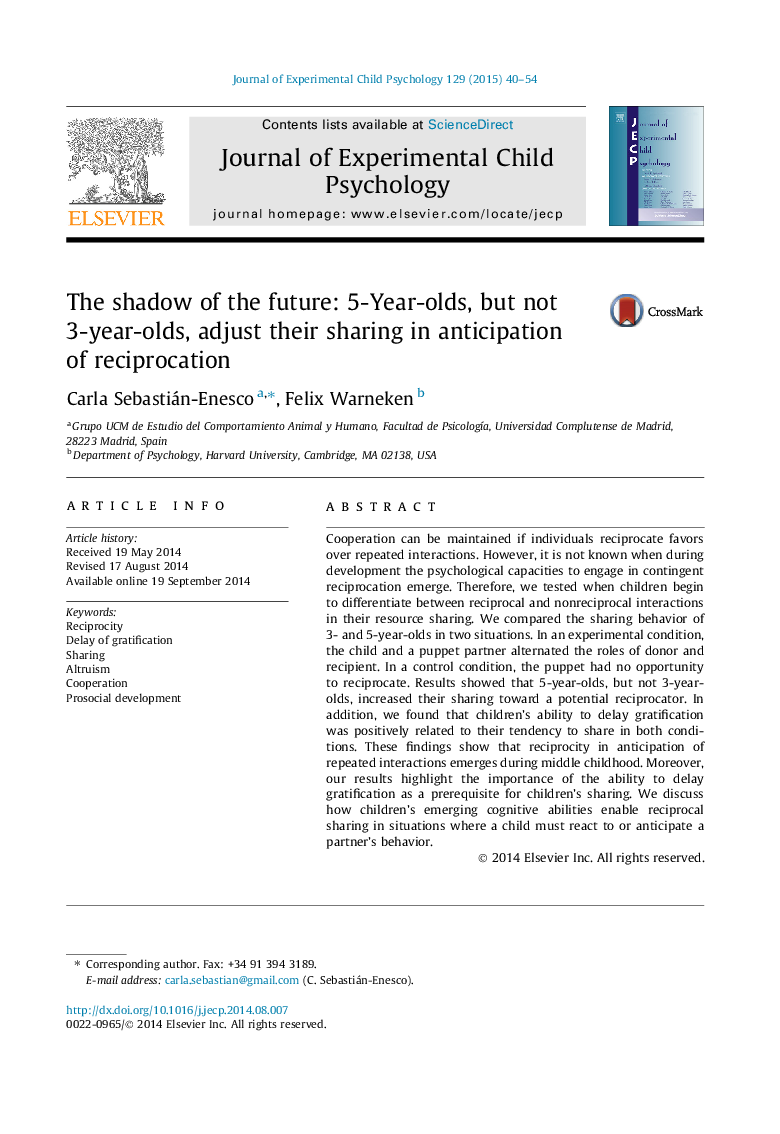| Article ID | Journal | Published Year | Pages | File Type |
|---|---|---|---|---|
| 918031 | Journal of Experimental Child Psychology | 2015 | 15 Pages |
•Strategic reciprocity emerges later in development than past-event driven reciprocity.•5-year-olds assess the opportunity to be reciprocated when deciding how much to share.•The ability to delay gratification is positively related to children’s sharing.
Cooperation can be maintained if individuals reciprocate favors over repeated interactions. However, it is not known when during development the psychological capacities to engage in contingent reciprocation emerge. Therefore, we tested when children begin to differentiate between reciprocal and nonreciprocal interactions in their resource sharing. We compared the sharing behavior of 3- and 5-year-olds in two situations. In an experimental condition, the child and a puppet partner alternated the roles of donor and recipient. In a control condition, the puppet had no opportunity to reciprocate. Results showed that 5-year-olds, but not 3-year-olds, increased their sharing toward a potential reciprocator. In addition, we found that children’s ability to delay gratification was positively related to their tendency to share in both conditions. These findings show that reciprocity in anticipation of repeated interactions emerges during middle childhood. Moreover, our results highlight the importance of the ability to delay gratification as a prerequisite for children’s sharing. We discuss how children’s emerging cognitive abilities enable reciprocal sharing in situations where a child must react to or anticipate a partner’s behavior.
